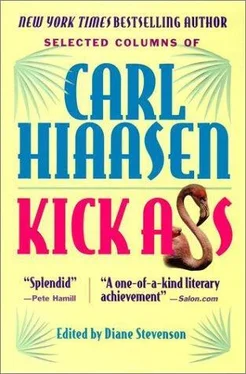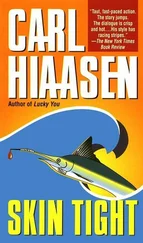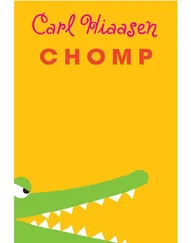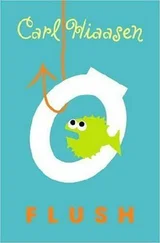Next week the county's finance committee will consider whether or not to set aside its fiscal worries, dig into your pockets and give generously to this sporting cause.
Considering his track record with the county commissioners, it's no wonder that Ralph Sanchez is back at Government Center, a pit stop in more ways than one.
Track developer now charity case for Homestead
August 1, 1993
For those wondering how long it would take the new Metro Commission to start throwing money away, the wait is over: $20 million for auto racing in Homestead.
The 11—1 vote came last Tuesday at midnight, when public attendance was conveniently at a minimum. It brought to $31 million the total that Grand Prix hustler Ralph Sanchez has charmed from the county commission since October.
It's his biggest jackpot ever. Who needs telethons when you've got such softhearted politicians? Sanchez and Homestead City Manager Alex Muxo had no trouble selling the outlandish proposition that South Dade's hurricane recovery should be anchored by a private racetrack, to be used for only three or four major events a year.
Behind-the-scenes players included two longtime Sanchez cohorts, lobbyists Ron Book and Sergio Pereira. Pereira is an old hand at frittering public funds. As county manager, he once spent $9,400 on a new desk.
The Sanchez giveaway comes from a sports tax on hotel beds. Muxo raided the same kitty before; the result is an empty $12 million baseball stadium. Now Homestead wants racing, even though Sanchez's track record is an 11-year skid of red ink.
While claiming his races are a hit, Sanchez remains mysteriously dependent on the dole:
• 1985. Despite receiving more than $1 million in public subsidies, Sanchez says his races lost more than $2 million. Nonetheless, he manages to find the money to pay for a new Mercedes-Benz for his lobbyist, Book.
• February 1986. Ralph Aid I: Miami paves Bicentennial Park into a grand prix track. The city also gives Sanchez $250,000, plus an interest-free loan. That's added to the $800,000 he's already gotten from the county and the state.
• July 1986. Ralph Aid II: Sergio Pereira, then county manager, decides Sanchez needs more. He proposes a $5 million bailout over 10 years. The Metro Commission pares the handout to $200,000 a year, plus a $368,000 payment for "unexpected" costs.
• 1987-1988. Still itchy, Pereira and Sanchez hatch a scheme for Metro to buy out Sanchez's operations, and move the races to the Opa-locka airport. That nutty idea costs taxpayers $300,000 in consultant fees. The plan is dropped when Pereira quits as county manager, after he's caught lying about his secret involvement in a land deal.
• 1992. Miami gives Sanchez his customary $200,000, plus $300,000 in fire and police services. Not enough! He wants to move the Grand Prix to Munisport, a toxic dump in North Miami. Residents protest, saying they'd rather have a quiet dump than a noisy racetrack. Sanchez turns to Homestead ...
And Homestead is ripe for the picking. Flattened by the storm, vacated by the Air Force, jilted by the Cleveland Indians, the city is frantic for a boost.
Disguising Ralph Relief as hurricane relief worked brilliantly. Commissioner Larry Hawkins played everything but the violin, and Sanchez got his racetrack without putting up a penny. The public got a $20 million lube job.
Like the ballpark, a track will bring temporary construction jobs to South Dade. But after it's built, then what? For all but a few weeks each year, the place won't draw flies, much less tourists. (Muxo says Homestead police might use the new track for training, making it the world's most expensive driver-education course.)
If the Grand Prix can't turn a healthy profit on prime downtown bayfront, Sanchez stands no chance in the distant fields of South Dade.
The only winners in this deal are the taxpayers of Miami, who will be spared their annual $500,000 bailout of Ralph's party. Now he is Homestead's charity case.
Let Lipton thrive or fail on its own
July 25, 1990
Another brainy idea from the county manager: using a tourism tax to build a tennis stadium on Key Biscayne.
Yes, folks, the happy Lipton giveaway continues. In his zeal to keep the International Players Championships at Crandon Park, County Manager Joaquin Avino wants tax dollars used to help pay for a permanent $16.5 million stadium.
This is the very same stadium which, only a few years ago, promoter Butch Buchholz had promised to build with private funds. Not a penny of public money would be spent, he said.
What happened? We got stuck again, that's what. The Lipton is costing county government plenty, and it's about to get much worse. Having been clobbered once in court, the county charges onward heedlessly, making the same mistakes. It is certain to be sued again.
Undaunted, the commission on Tuesday accepted Avino's tennis-tax plan, allowing him to begin negotiations. Short-term memory loss apparently afflicts some of the commissioners, who only two years ago vowed to spend no more public funds on the Lipton.
Hailed by supporters as a booming triumph, the tennis tournament nonetheless loses money year after year. Most private businesses, faced with such chronic deficits, would either reorganize or go bankrupt. Not the Lipton, which has been a special charity case from Day One.
First the county handed over a big chunk of a public park. Then it financed a $1 million clubhouse. Then it paid for the parking lots. Then it sweet-talked the state out of a cool $1 million or so. Now it wants to tax tourist motels to bankroll a new stadium.
Which brings up another mystery. For months we've been warned that the Lipton would abandon Dade County for greener pastures if a permanent 12,000-seat stadium weren't constructed. Then an appellate court ruled that the tournament violates the deed, as written by the Matheson family when it donated the unspoiled property half a century ago.
Suddenly the ultimatum for a 12,000-seat stadium disappeared. Planners emerged with a new scheme for a smaller, 7,500-seat stadium with more public parking. It was put forward as a "compromise" to please worried Key Biscayne residents—but the real effect was to dodge the South Florida Regional Planning Council, which must review and approve large projects. Supporters defend these tactics by saying the Lipton is good for Florida, good for Dade County, good for Key Biscayne. They claim a positive economic impact of $111 million annually—an unsubstantiated puffery based on some of the wildest calculations you ever saw.
Certainly this is a fine tennis tournament, but it ought to succeed or fail on its own. To use millions in tax money to prop up a private sports enterprise is reckless. To use a public park for it is a disgrace.
There's nothing to stop the promoters from buying their own land and developing their own tennis stadium—people in South Florida would cheer for its success. As it now stands, every taxpayer in Dade County should get free admission to the Lipton tournament, since they've paid for so much of it.
Even if the commission votes for the tennis tax, there's an excellent chance the stadium will need a new location. If the Matheson property isn't used exclusively for public park purposes, the deed allows the family to invoke a "reverter" clause to take the land back.
Which is exactly what they're contemplating.
If the Matheson heirs choose to reclaim the donated property, it will be a lacerating embarrassment to the county. The family could give the Crandon tract to either the state or the federal government for preservation as a park. That means no tennis stadium, no retail shops, no tournament.
The county will fight it, of course—spending hundreds of thousands more tax dollars on what could easily be a losing cause. And a misguided one.
Читать дальше









